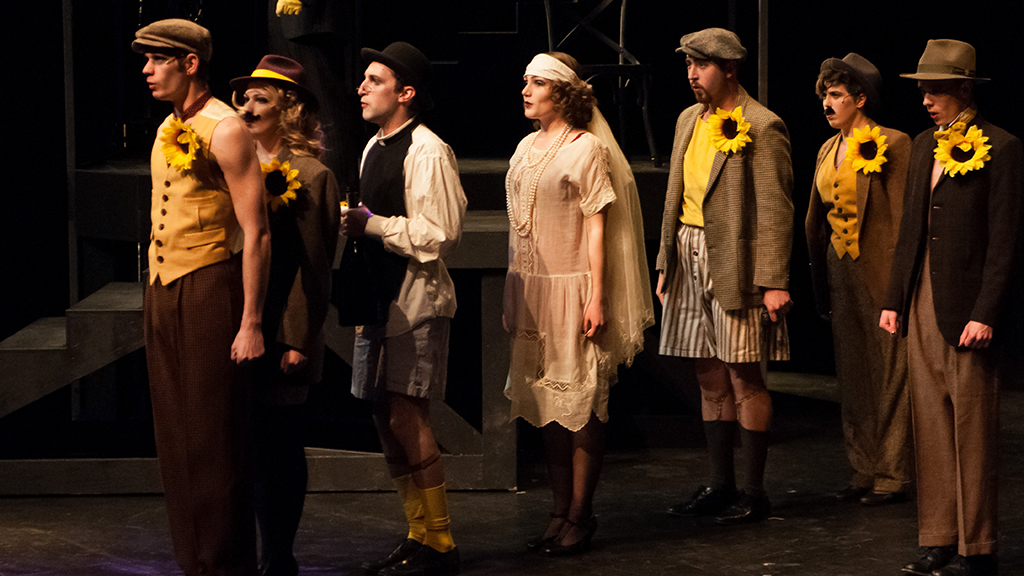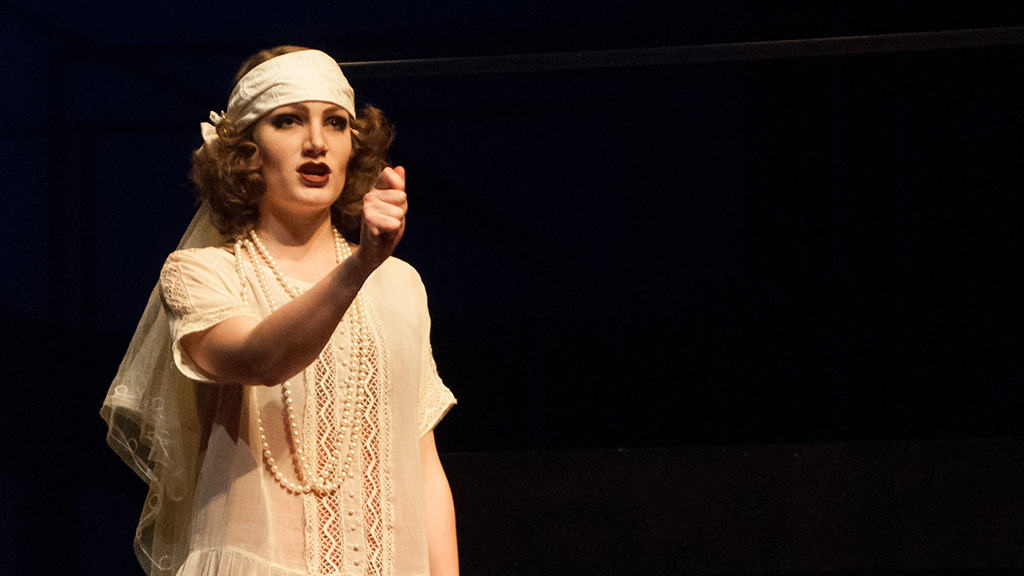Studio Theatre brings Mack the Knife to life
 Alexandros Papavasiliou
Alexandros PapavasiliouThe Threepenny Opera
When: February 5-14, 7:30 p.m., matinee Thursday, February 12 at 12:30 p.m. (no show February 8)
Where: Timms Centre for the Arts (87 Avenue and 112 Street)
Written by: Bertold Brecht
Directed by: Brian Deedrick
Who: Hunter Cardinal, Maxwell Theodore Lebeuf
How much: $11 for students at the Timms Centre Box Office
University of Alberta BFA actors playing actors in Weimar Germany playing beggars in mid-19th century England? The initial explanation of Studio Theatre’s latest production The Threepenny Opera can sound a little complicated, but according to a couple of the actors involved, the complication is part of the show’s power and part of the fun. And they promise to bring the sparkle and the spectacle alongside the deep thought.

The Threepenny Opera, which premiered in Berlin in 1928, is a piece of musical theatre written by Bertold Brecht, the famous playwright perhaps best known for helping popularize the idea of breaking the fourth wall and acknowledging the presence of the audience. Based on John Gay’s ballad opera The Beggar’s Opera, The Threepenny Opera tells the story of a group of characters in the London underworld and their interactions with the charismatic and powerful murderer, Mack the Knife.
Looking back at the play’s premiere just five years before Hitler’s rise to power in Germany, it seems to say disturbingly prescient things about the power of personality. For Bobbi Goddard, playing the role of the bawdy matron Mrs. Peachum, this warning remains important to consider.
“(Mack the Knife) is crazy and he has tons of power, but … we love him and in spite of ourselves want good things for him,” she says. “I think that’s an interesting comment on the people who are powerful and dangerous in our world and the things they get away with.”
The Threepenny Opera deals in blurred lines between seeming opposites like good and bad, rich and poor, real and artificial. Just as the audience might know Mack the Knife is evil but sympathize with him nonetheless, Brecht’s distinctive style draws attention to the artificiality of theatre but finds a space to make a real connection with the audience anyway. This style encourages spectacle and over-the-top characters, which can provide a satisfying degree of freedom for the actors but also makes creating authentic emotion difficult.
Goddard describes the balancing act as a matter of trying to figure out “how do you wink at the audience and at the same time have real moments between your fellow actors?”

For her fellow actor Hunter Cardinal, who plays Mack the Knife, the key lies in trying to understand the philosophical “why” behind his role and the play itself.
“Being able to find out why it’s relevant now, the reason why I, as an artist, as Hunter, am singing this song. Not because I’m told to so that, you know, I can get a degree. But finding that fire,” he says.
If philosophical ideas aren’t enough to drag you out to the theatre, the artistic fire and energy of the large cast, live orchestra and dramatic set would provide an incentive. It’s unusual for the BFA class to stage a show involving all its actors, let alone a musical. The process has been an exciting experience for the cast.
“When you put 14 humans on stage, it looks spectacular,” says Goddard. “And then you add an orchestra also on stage. So there is, like, humans and energy everywhere.”
For Cardinal, the thrill of big ideas and visual spectacle only add to the deepest thrill of all: working with talented people.
“One of the most exciting things about this process is the sheer amount of artistic involvement and dedication from people,” he says.
“Everyone’s so there to do this thing, whatever it is, and just that attitude, that energy is electrifying.”




